From time to time, World Physiotherapy offers internships to physiotherapists around the world. We recently offered internships to Kaori Hara, a physiotherapist from Japan, and to Pei-Yun Lee, a physiotherapist from Taiwan. We invited them to share their experiences of being an intern.
Kaori Hara
Kaori has worked at a general hospital in Tokyo for eight years and treated people with a range of conditions. In addition to her clinical experiences, Kaori has volunteered with Japan International Cooperation Agency (JICA) for a development assistance project to promote respiratory rehabilitation in Kathmandu, Nepal, and worked with the local government in Itabashi Ward, Tokyo, on a health promotion project. In 2020, Kaori moved to the UK and completed a MSc in Global Public Health and Policy at Queen Mary University of London.
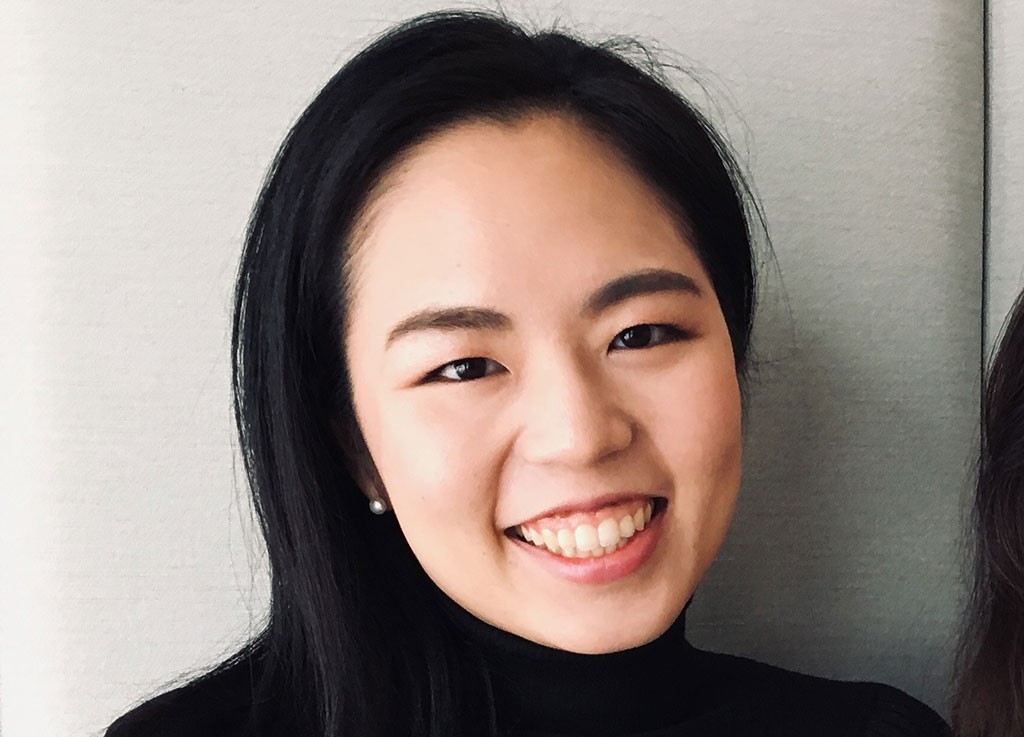
Have you completed an internship before
This was my first internship, and I interned part time for five months from August to December 2021.
What attracted you to an internship with World Physiotherapy
I was very attracted to its strong commitment to global health by promoting the profession of physiotherapy as an international organisation.
Having immersed myself in a global perspective on health and illness during my MSc and developed my understanding of complex links between social factors and health outcomes of population, I was looking for an opportunity that allowed me to integrate academic learning with the view of profession in rehabilitation.
Since World Physiotherapy has a wide range of collaborations across the world in a variety of settings and leads the physiotherapy community worldwide, working within the organisation and learning from their perspective was the perfect opportunity for me to help achieve my goals.
Short description of the project you’ve been working on
I was involved in the development of a policy statement on the topic of climate change and health. This work entailed scoping and mapping a wide range of resources, determining the arguments to be advocated, drafting the policy statement, reviewing the feedback received from consultation teams around the world, and finalising the project.
Highlights of the internship
One of the challenging things during the activities was how to determine which evidence and action plans to incorporate into the policy statement. Since there were numerous studies on this topic and the different arguments all seemed to be correct from different aspects, it was challenging to sort through the information.
As I received guidance from Tracy Bury, deputy CEO (my internship supervisor) I gradually came to understand the role of this policy statement in a global context, made my own judgments, and created an initial draft stage.
Six months later, being able to see the feedback from the consultation teams from around the world, create a response to that feedback, and finalise the policy statement further strengthened my awareness of what it means to issue a policy statement as an international body. This was completely in line with my goal of learning how to drive the profession of physiotherapy in the very complex and diverse world of global health. It was a moment when I felt that I had accomplished what I had desired to learn through this internship.
Next steps for the project
The next steps would be how to keep each member organisation empowered to take legitimate actions to mitigate and adapt to climate change. Different countries and regions may have different situations and constraints. As an international organisation, I consider that World Physiotherapy has a role to closely monitor the action taken and creating a space to share experiences and knowledge across countries would be an important role for the future.
How has the internship developed your knowledge and understanding of the global physiotherapy community
One of the most important things I learned was the perspective of diversity and inclusion.
For example, in the process of developing the policy statement, I drew on a number of evidence and guidelines generated by respected international institutions. However, I had to be creative in leaving room for the statement to be adaptable to physiotherapy community around the world with a respect for different contexts.
Did you learn anything during the internship that surprised you
First of all, I was amazed by the warmth of the workplace. I first met Jonathon Kruger (CEO) and Tracy face to face, and they were both amazingly welcoming and cooperative, yet very energetic and motivating to be with.
I was also surprised by the diversity of the workplace. There were professionals from all over the world attending meetings from all walks of life, and this is what made me realise that I am now working in a global place.
I was also exposed to sophisticated and high-space work flow by receiving supervision from Tracy, which inspired me to visualise what kind of female leader I would like to become in my future career development. It was really all a good experience.
Would you recommend an internship with World Physiotherapy to your colleagues and networks
Definitely yes, I would. For those with a passion for contributing to global health, this is a wonderful opportunity to build a global network and expand your horizons.
How will you use the experience of the internship in your country/territory
I am still based in the UK, rather than returning directly to my home country of Japan. This is because I feel that Japan still has limited opportunities for women to be successful compared to the international community. I strongly desire to change this situation and empower female professionals in Japan. Yet, I believe that my skills and abilities, as well as concrete actions, are not yet sufficient to achieve this and contribute to my country. So, my next step is to bring the experience in healthcare for the aging population, where Japan is leading the world, to the world and to conduct research and policy advocacy in this field, while acting as a bridge between Japan and overseas. In particular, I am interested in universal health coverage and increase of the access for rehabilitation focusing on local community health care governance and organisation.
Are you a member of the national physiotherapy association in your country/territory? How were they involved in your internship
Yes, I am a member of Japanese Physical Therapy Association. Although this internship was not officially organised by this organisation, I would like to thank Tomonori Ito, the head of department in international affairs of the Japanese Physical Therapy Association, in reconnecting me with Jonathon, after meeting at a conference in Japan in 2017.
Pei-Yun Lee
Pei-Yun is the deputy secretary of Taiwan Physical Therapy Association (TPTA). She is an associate professor in the department of physical therapy, National Cheng Kung University, in southern Taiwan, and also works part-time as a physiotherapist in the university hospital.
Have you completed an internship before
Clinical internship is essential for a physiotherapist during training. However, this was my first time being an intern at an organisation like World Physiotherapy. I spent three weeks working in the London office with World Physiotherapy staff in London and elsewhere.
What attracted you to an internship with World Physiotherapy
The opportunity to work with World Physiotherapy – the international organisation responsible for all the business related to the global physiotherapy community.
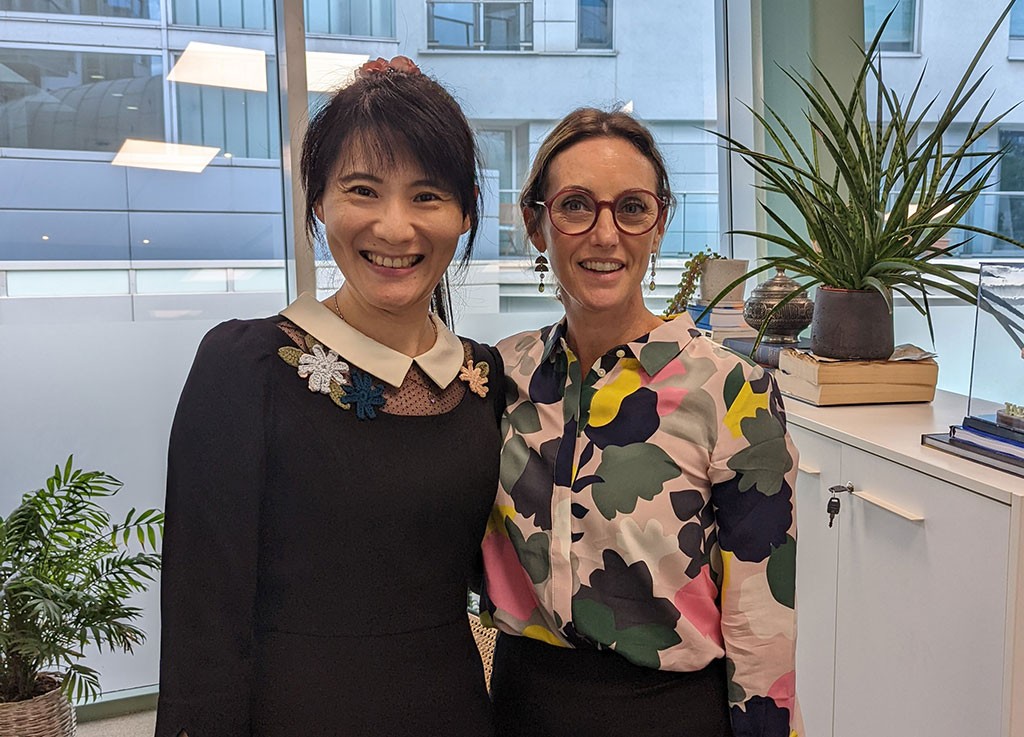
Short description of the project you’ve been working on
I have been working on analysing annual membership census (AMC) data that has been collected from all World Physiotherapy member organisations from 2019 to 2021 during the internship. I examined the variance in the status of the physiotherapy profession among member organisations at different country/territory income levels. The results might be able to help in advocating for the advancement of the profession, not only in the view of each member organisation but also more globally.
Highlights of the internship
The internal data from World Physiotherapy has not yet been analysed or published to the public under the proposed framework. This could help professional associations and the public understand the development of the physiotherapy profession worldwide or in each region.
Next steps for the project
We are still working on the data and trying to organise the results. We aim to publish part of the results in the form of either a conference paper or a journal article. With the publication we hope that the visibility of World Physiotherapy could possibly increase worldwide, and people would understand more about the global physiotherapy profession.
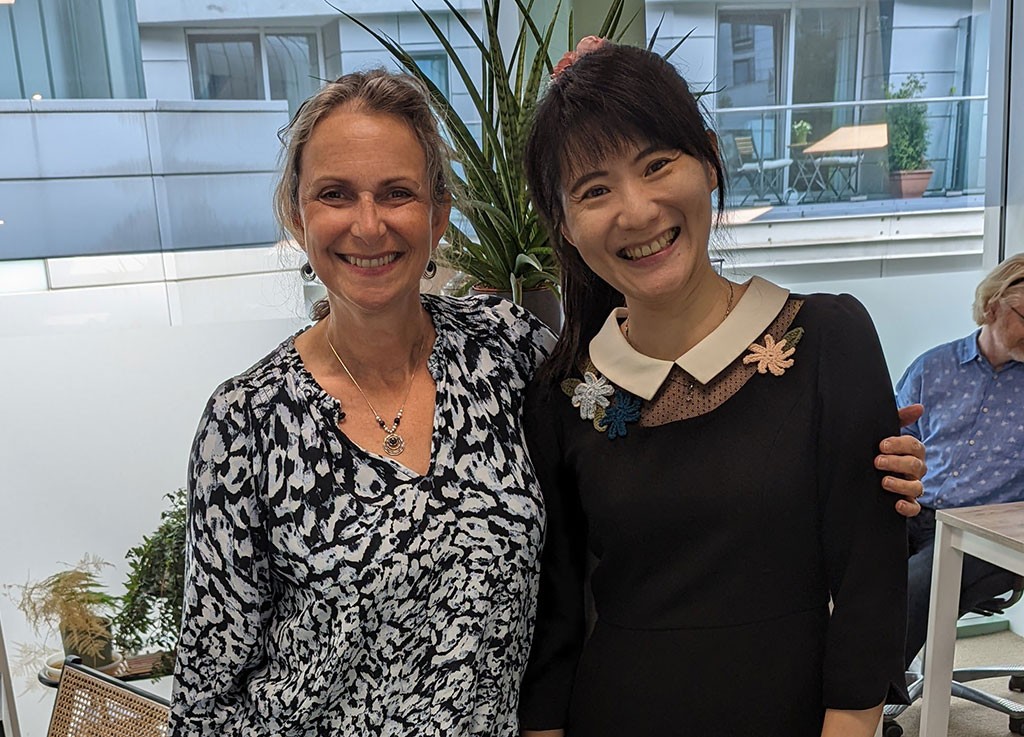
How has the internship developed your knowledge and understanding of the global physiotherapy community
I realised that the extent of development of the physiotherapy profession is different in all the member organisations, some are faster while others are slower. This also differs in different regions. Although I have already learned this as a teaching faculty in a university, I did not notice that different regions or countries/territories might have such a big difference. Furthermore, from analysing the AMC data, I became aware these differences could be caused by various factors, such as cultural, economic, education, political etc. In order to improve any issues relating to the physiotherapy profession in different regions, understanding the factors that may affect the development in the particular country/territory might be beneficial.
Did you learn anything during the internship that surprised you
I thought there would be more staff in the organisation. As an international organisation dealing with the global physiotherapy community, there is a lot of work but the organisation has a small staff team. Each team member is responsible for different areas of work, often collaborating on projects, and helps the organisation run efficiently.
Some staff work in the London office and others work remotely in the UK or in different countries/territories.
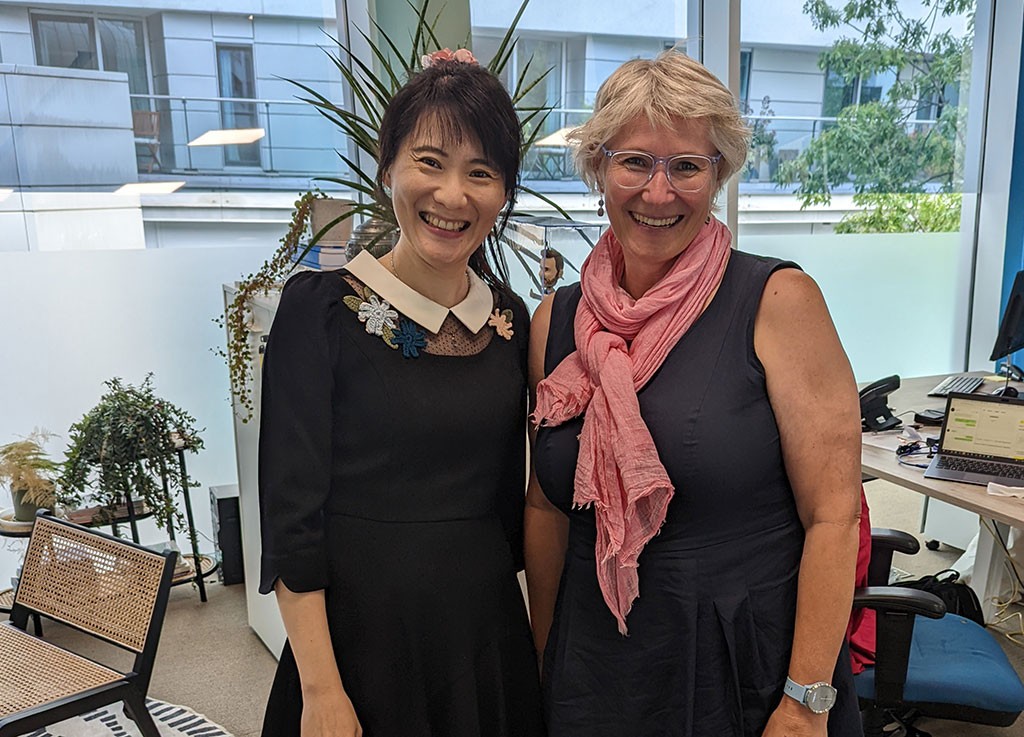
Would you recommend an internship with World Physiotherapy to your colleagues and networks
Of course! Through being an intern with World Physiotherapy I have gained much experience about how an international organisation works, how to collaborate with different organisations, and most importantly it was a lot of fun!
How will you use the experience of the internship in your country/territory
Upon completing this internship, I think I have a better understanding about what World Physiotherapy does and its role in supporting the development of the global physiotherapy profession and with different member organisations. As such, I could provide information to build the relationship between TPTA and World Physiotherapy.
For example, TPTA is trying to elevate the quality of physiotherapy in order to offer direct access to people in Taiwan. I would like to work with experts in TPTA, collaborate with other member organisations, and with World Physiotherapy to achieve this.
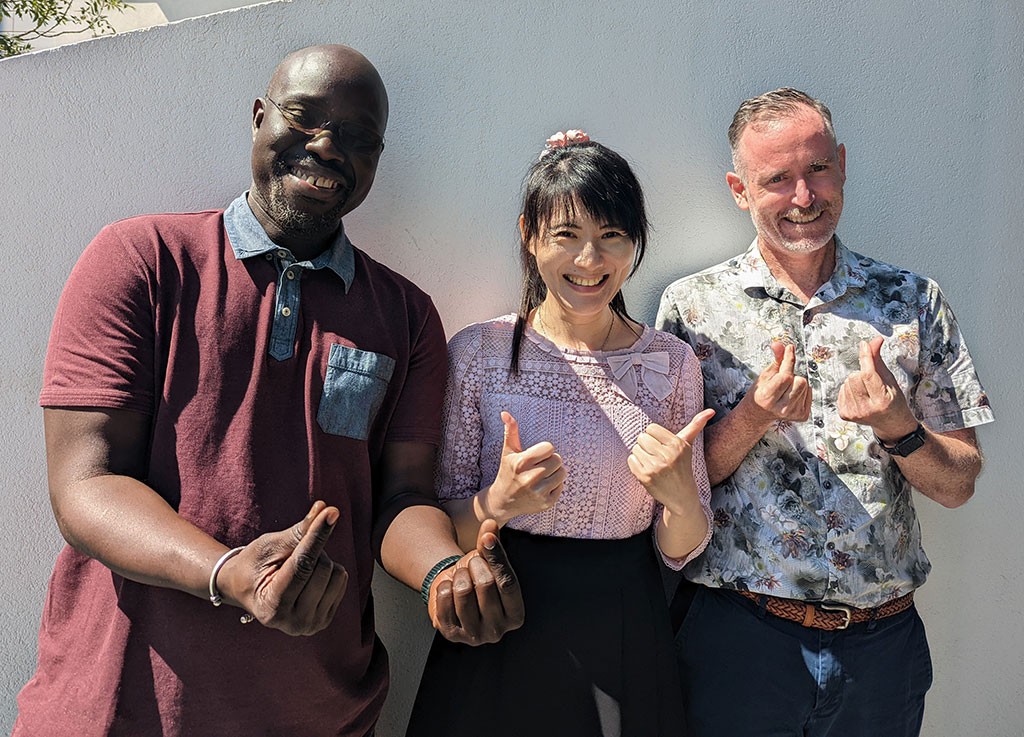
Are you a member of the national physiotherapy association in your country/territory? How were they involved in your internship
Yes, I am a member of the Taiwan Physical Therapy Association (TPTA). Because of TPTA, I came to know World Physiotherapy. TPTA has invited World Physiotherapy’s president Emma Stokes and CEO Jonathon Kruger to Taiwan to support our advocacy campaigns and to help develop the physiotherapy profession in Taiwan. This helped me understand the important role World Physiotherapy plays in supporting its member organisations in a variety of ways.

